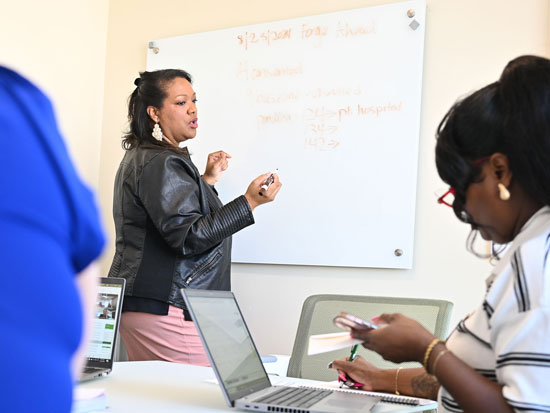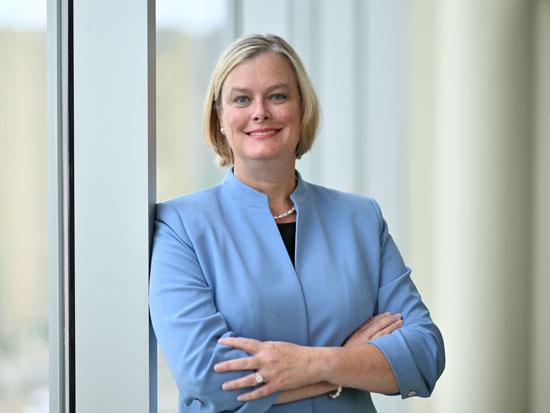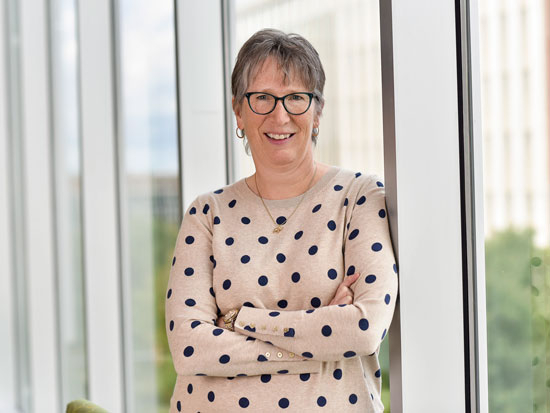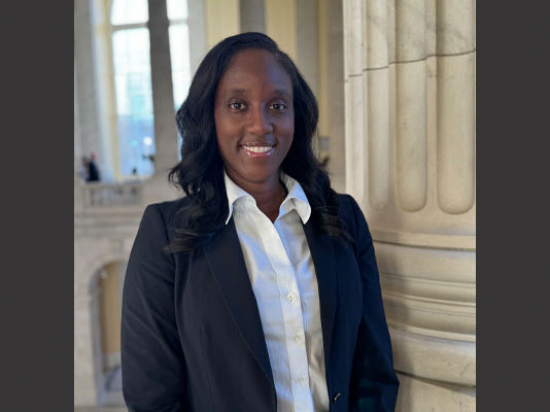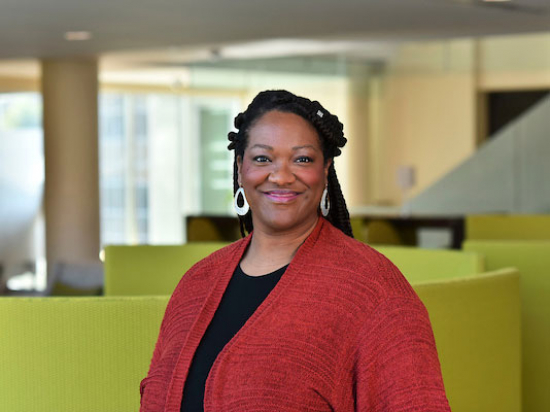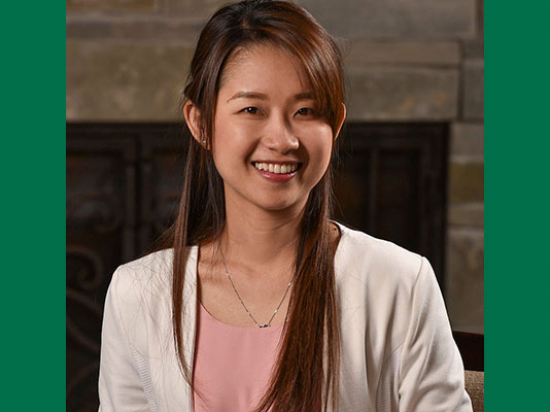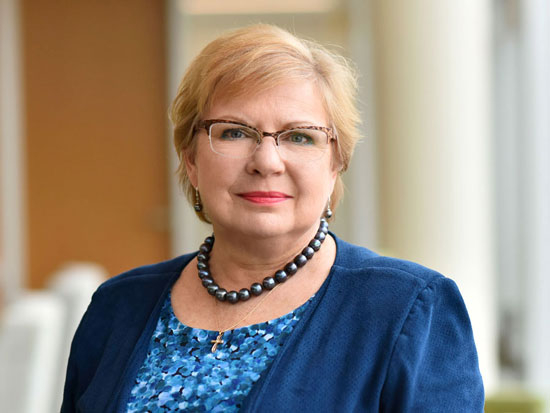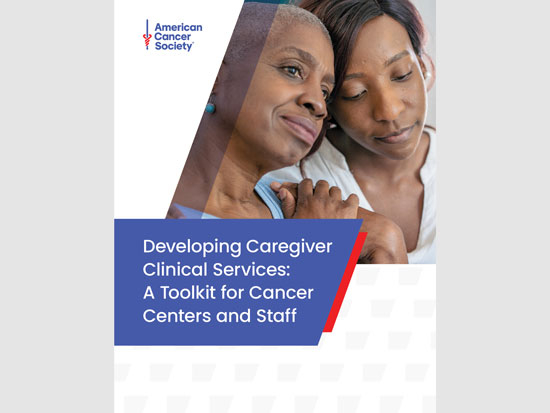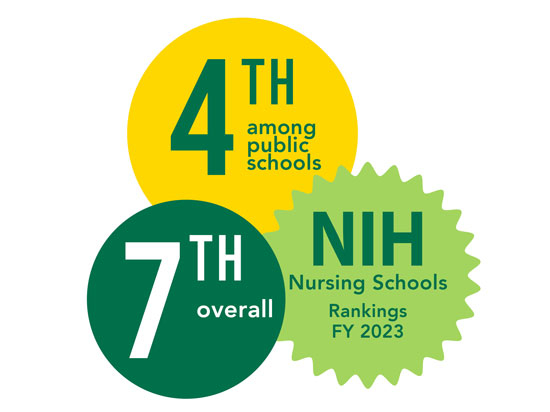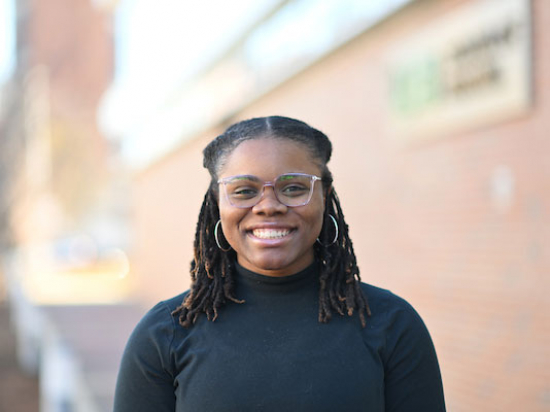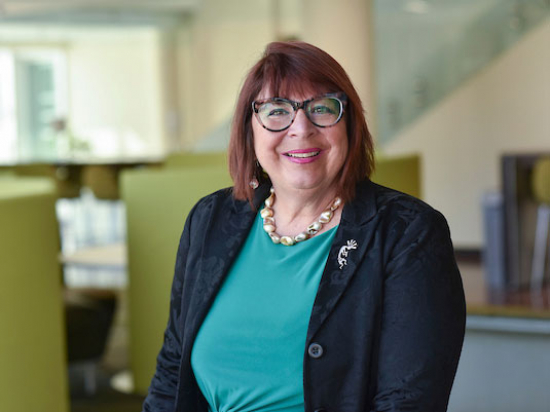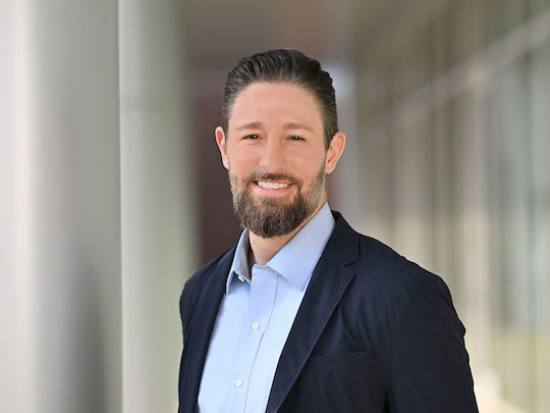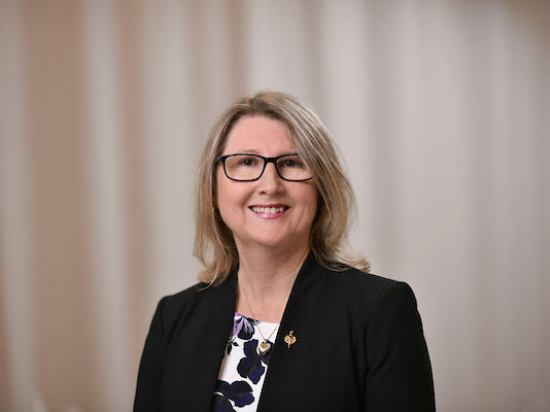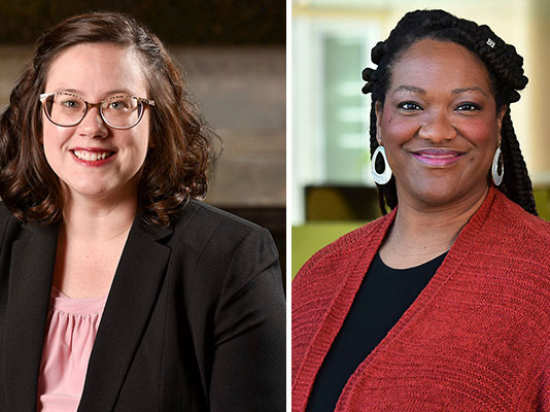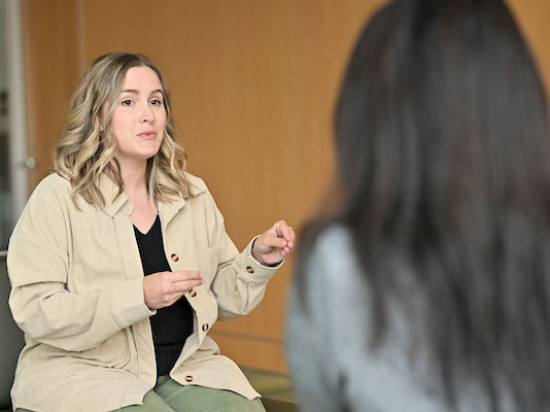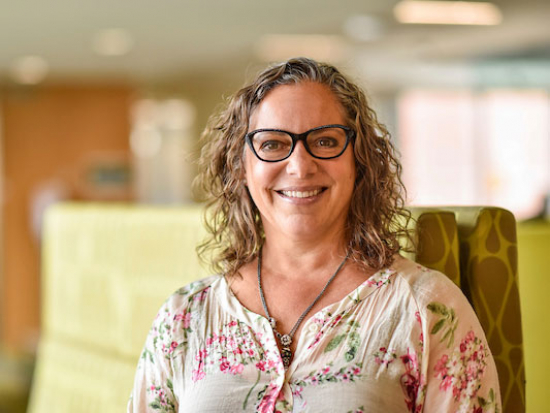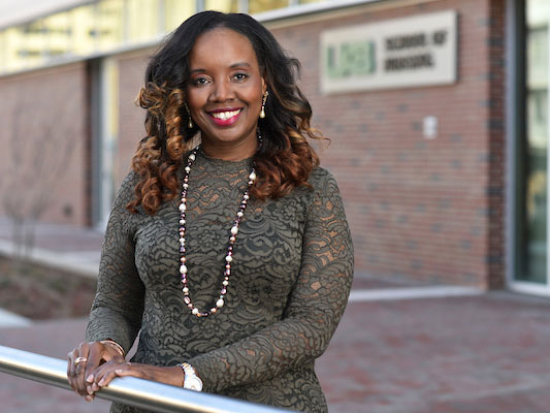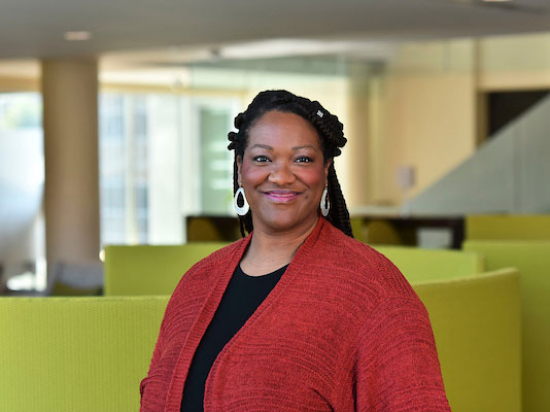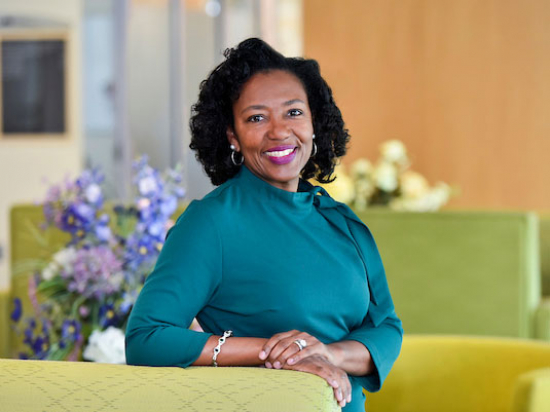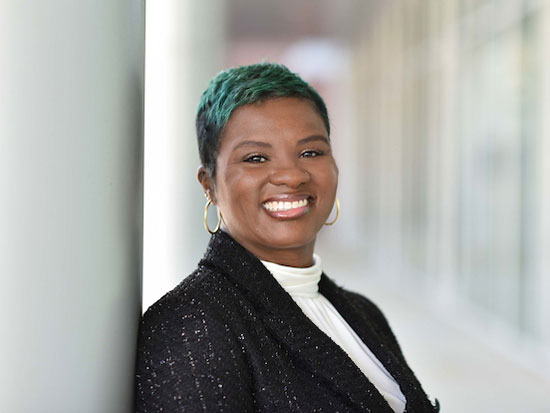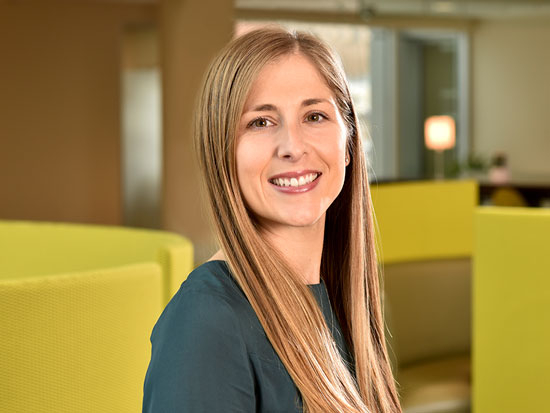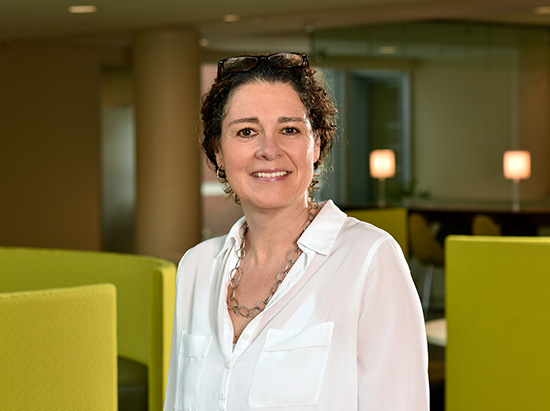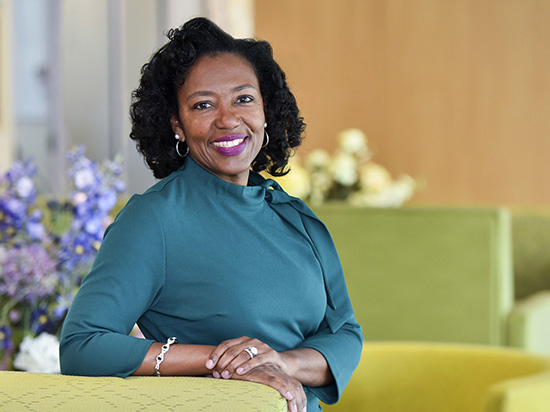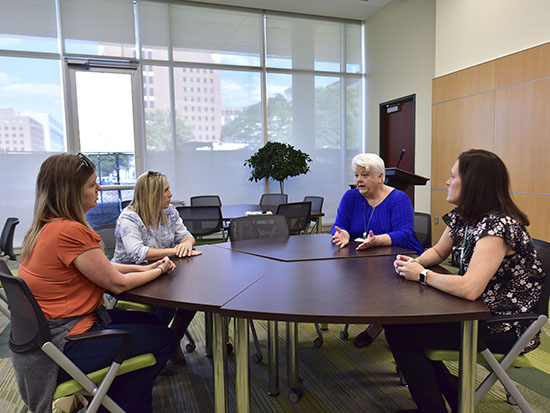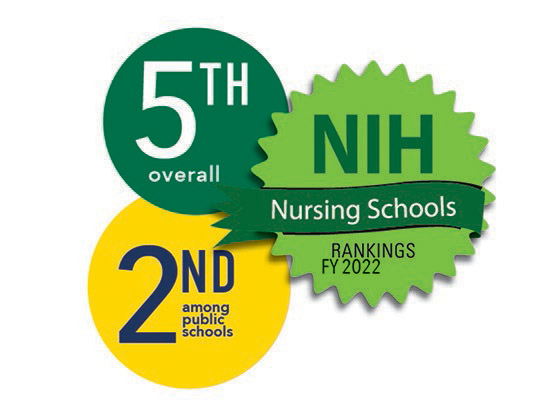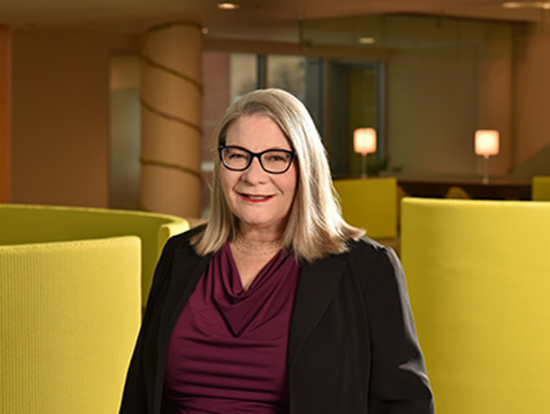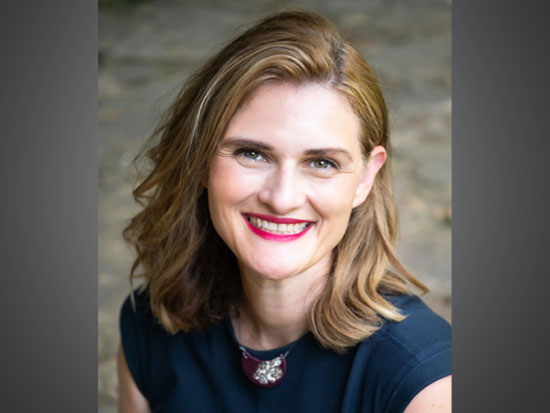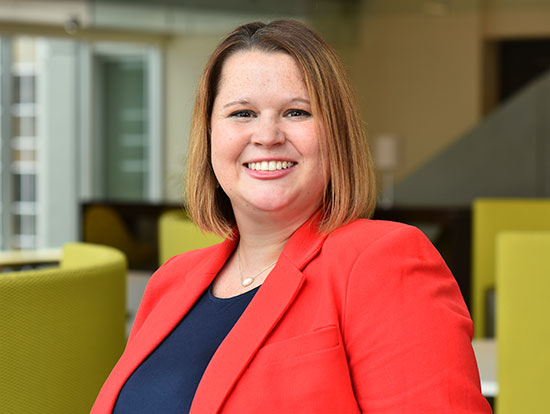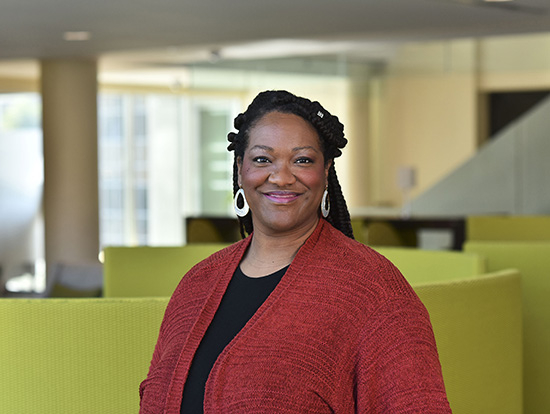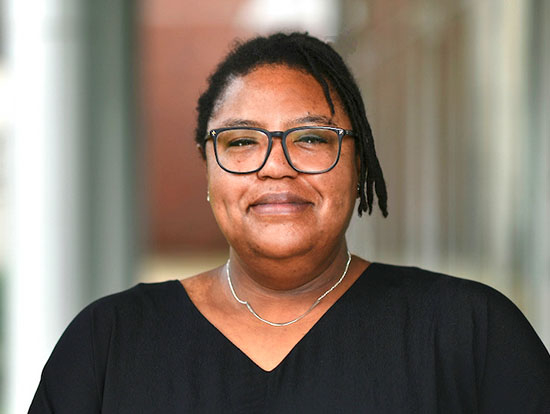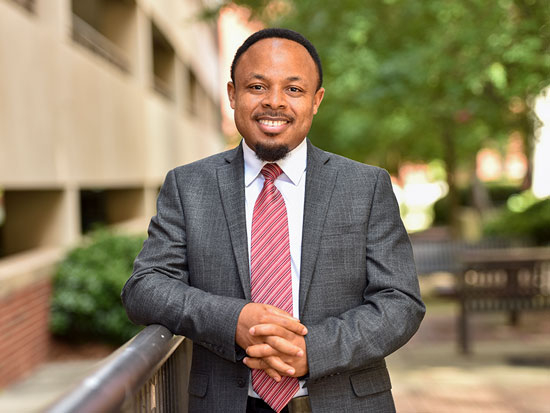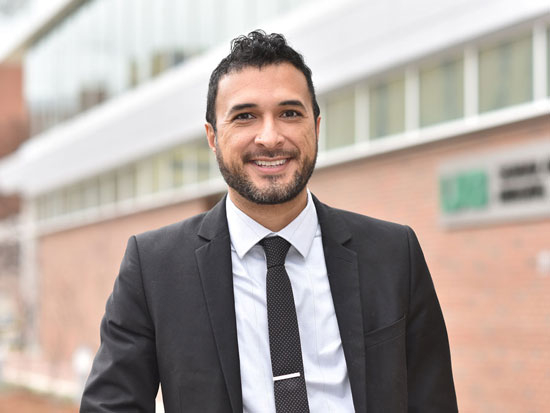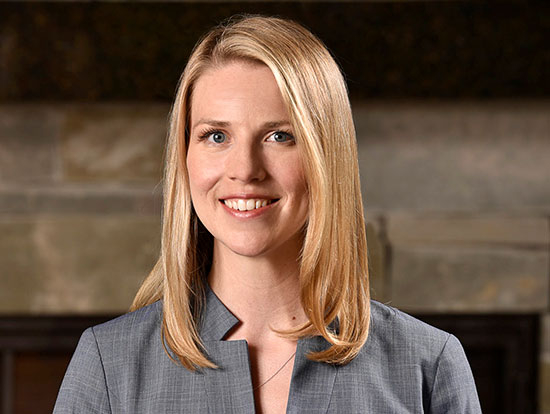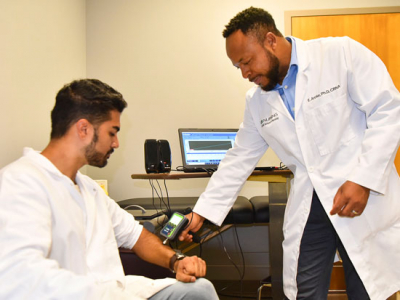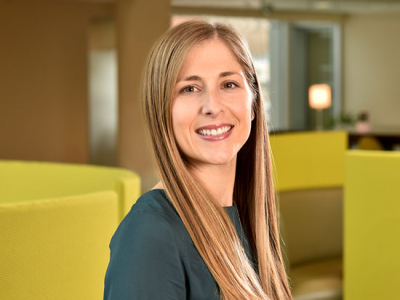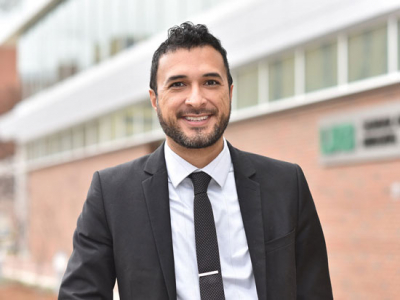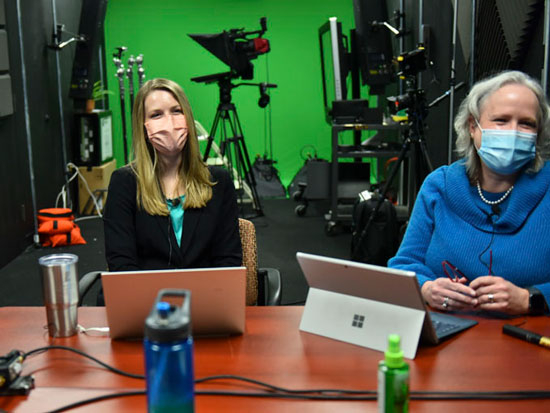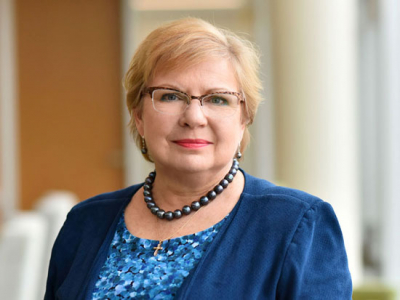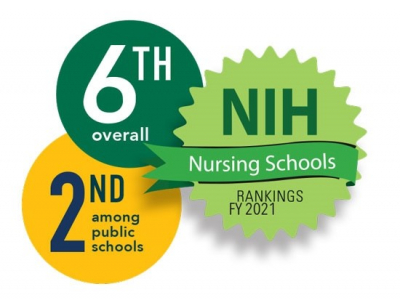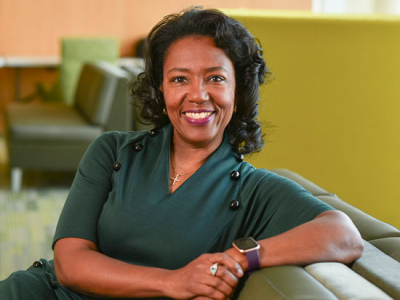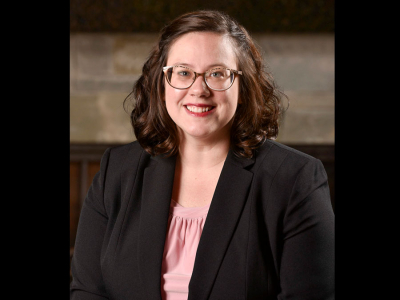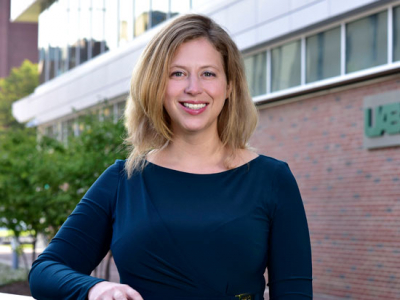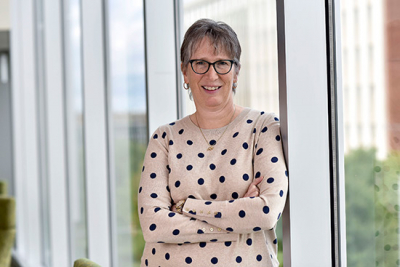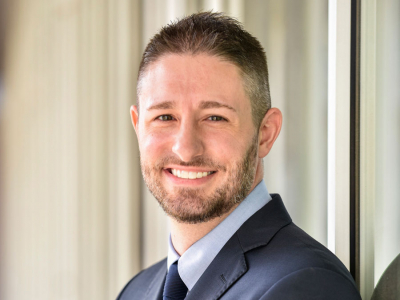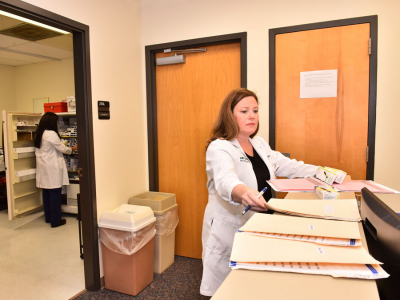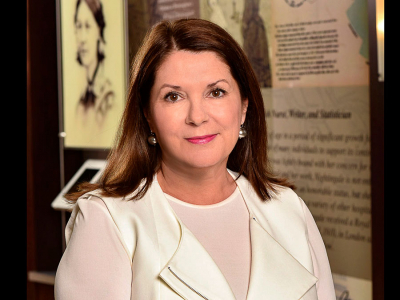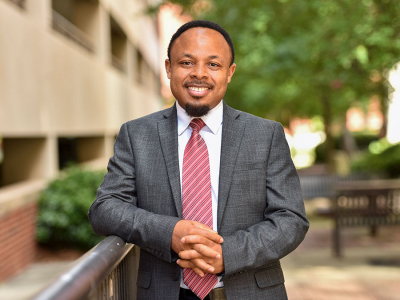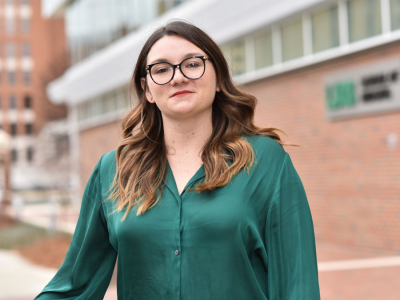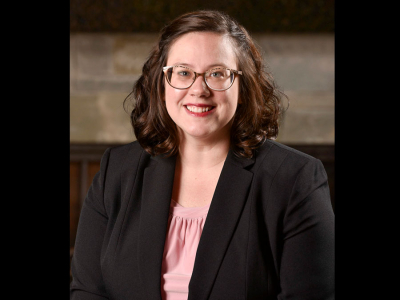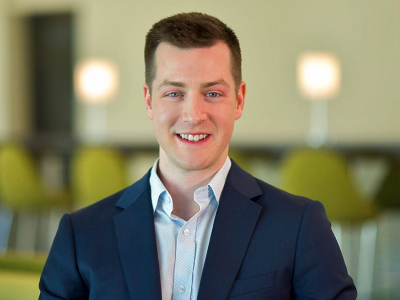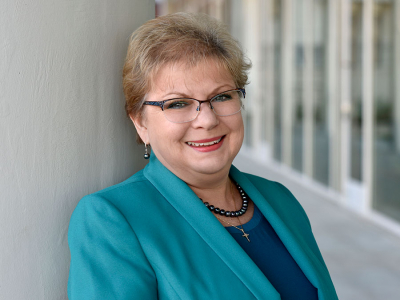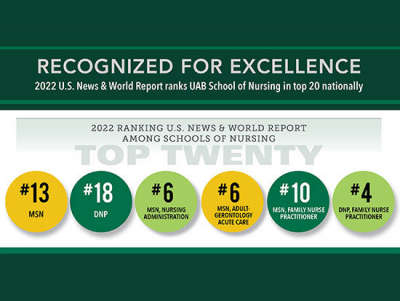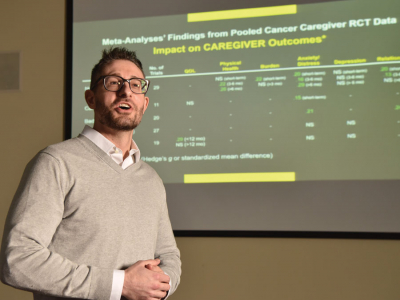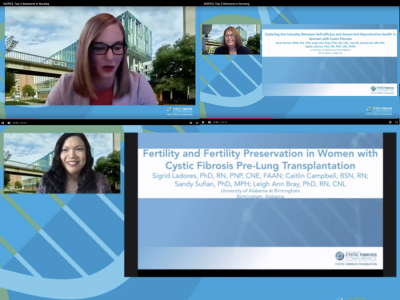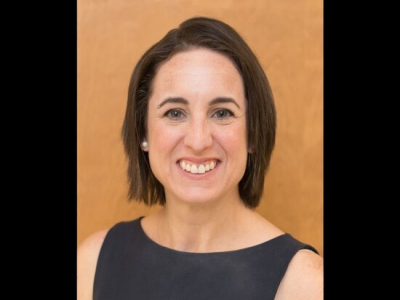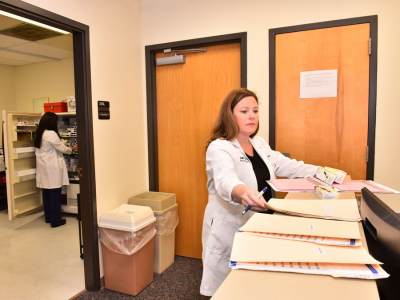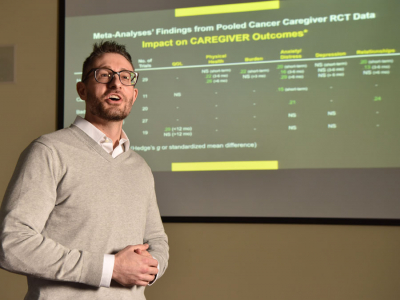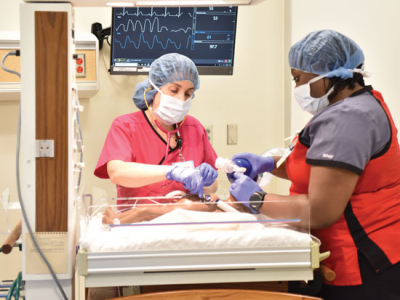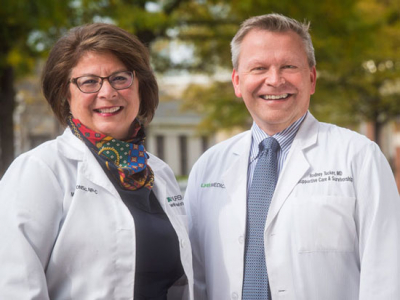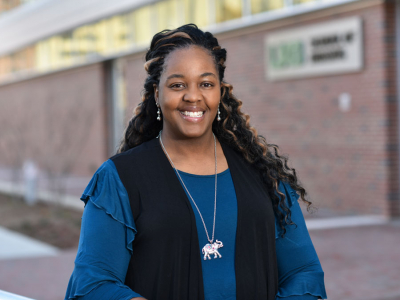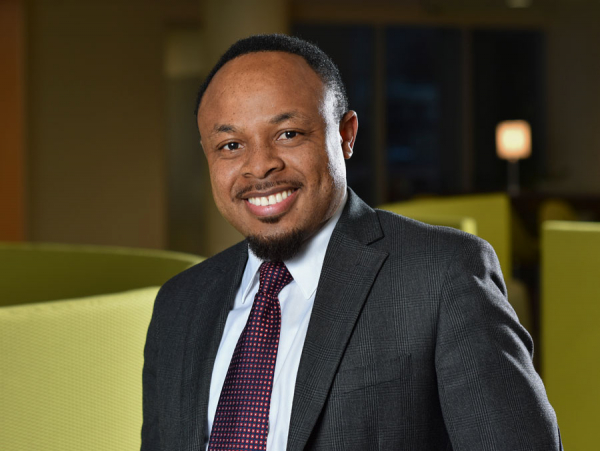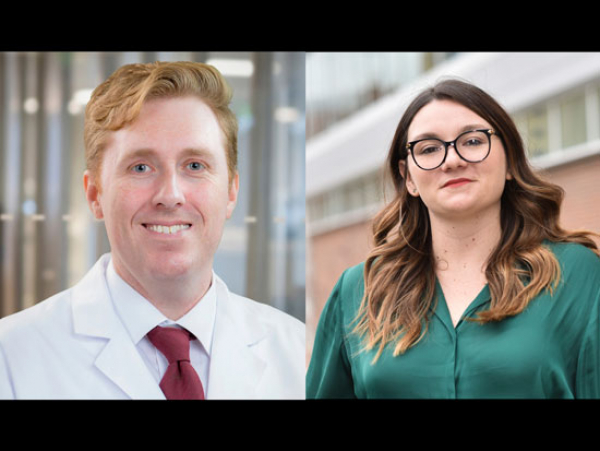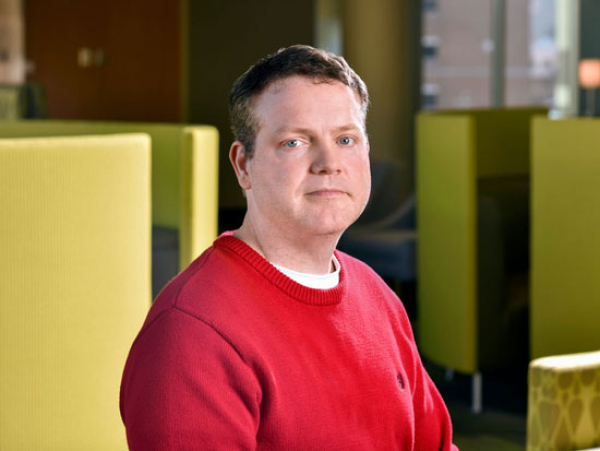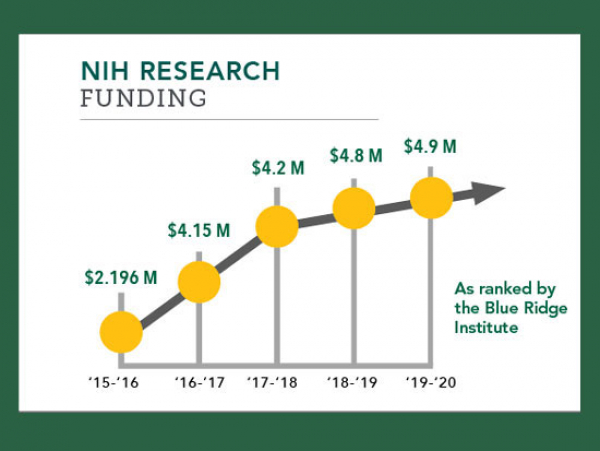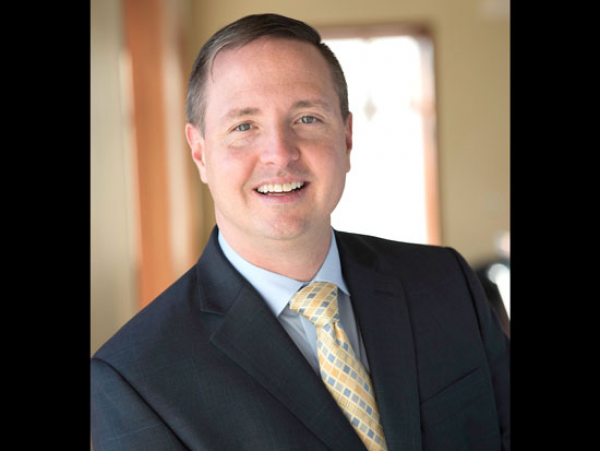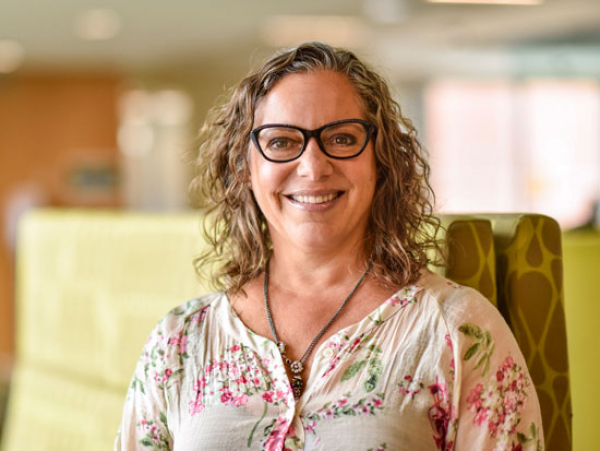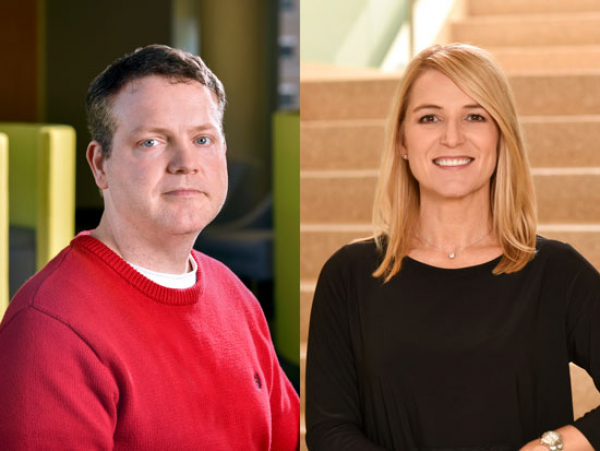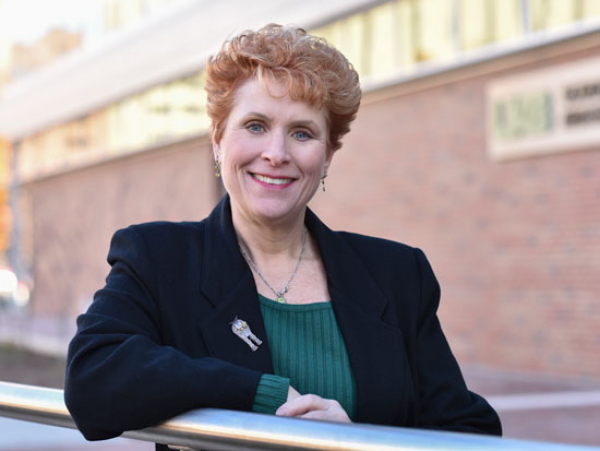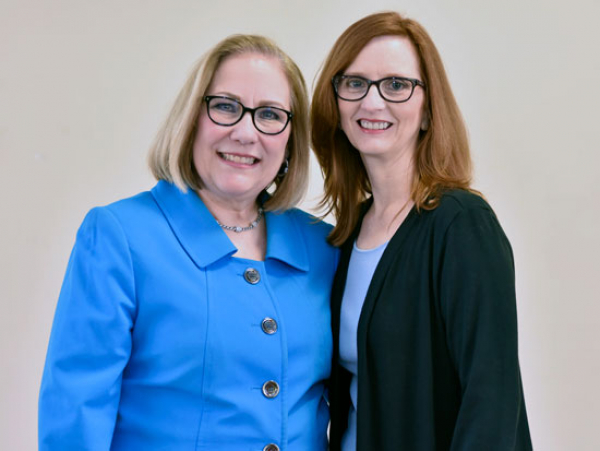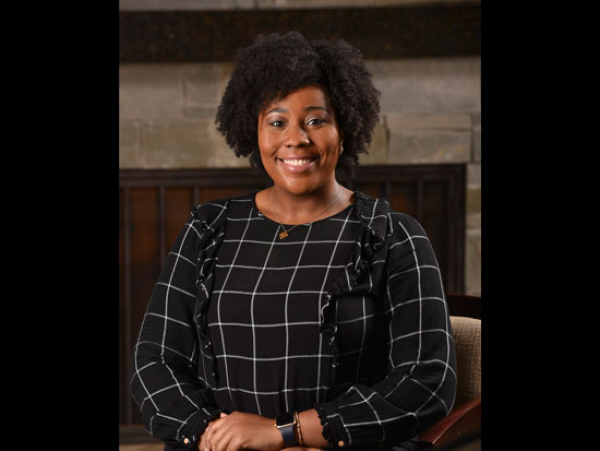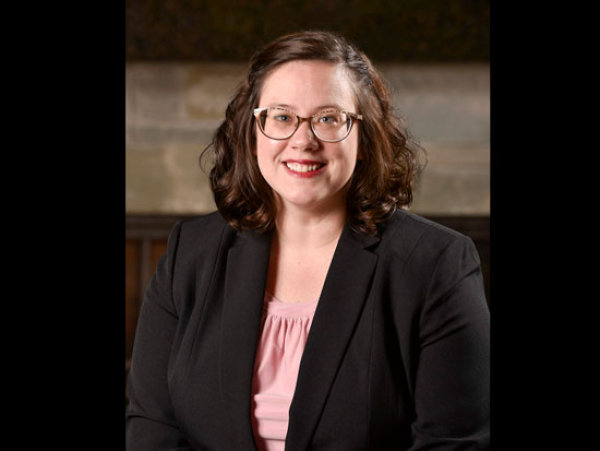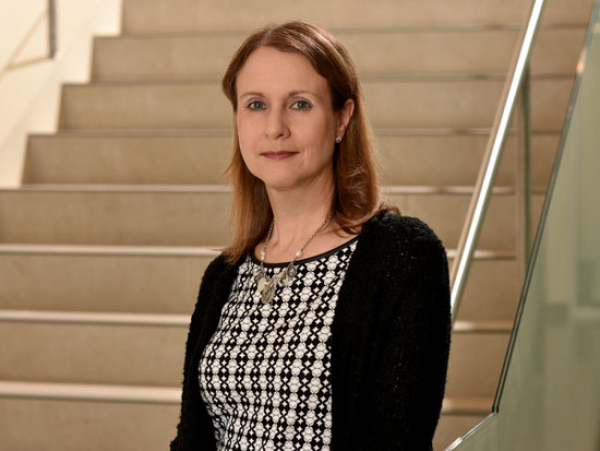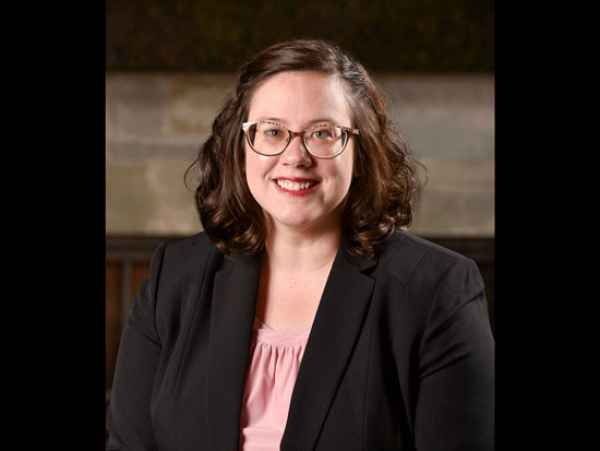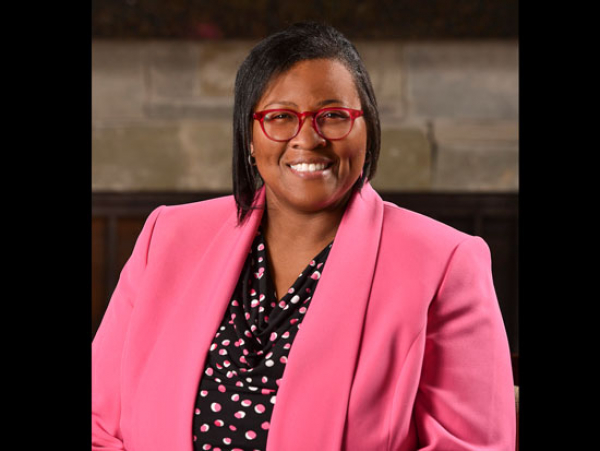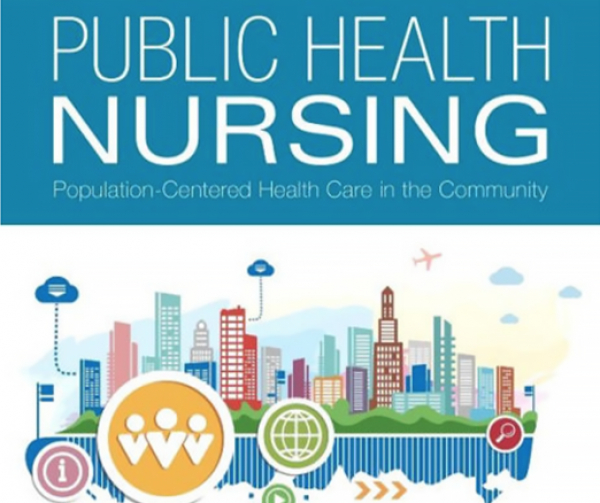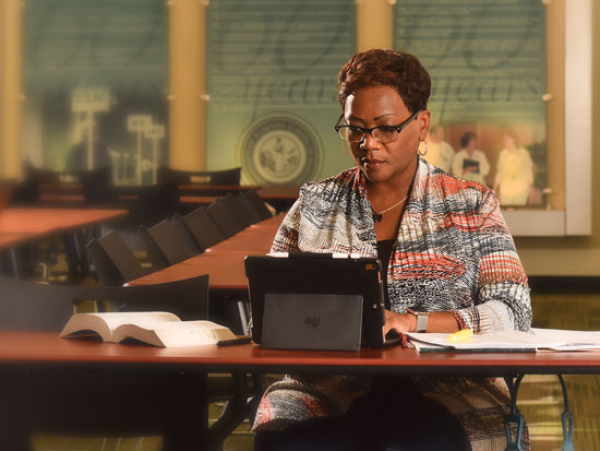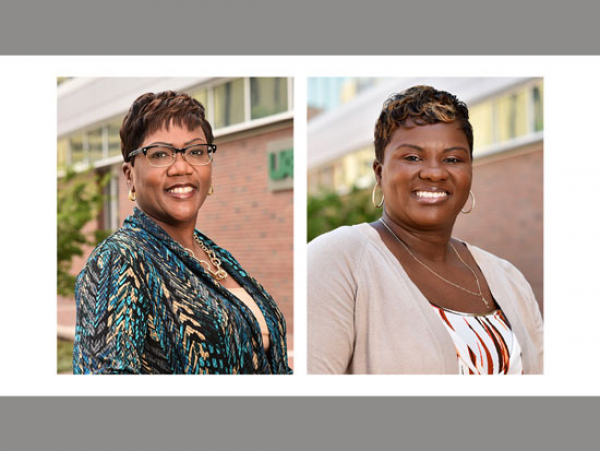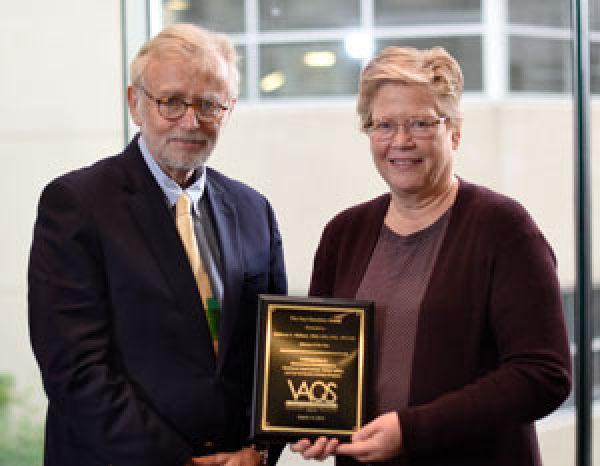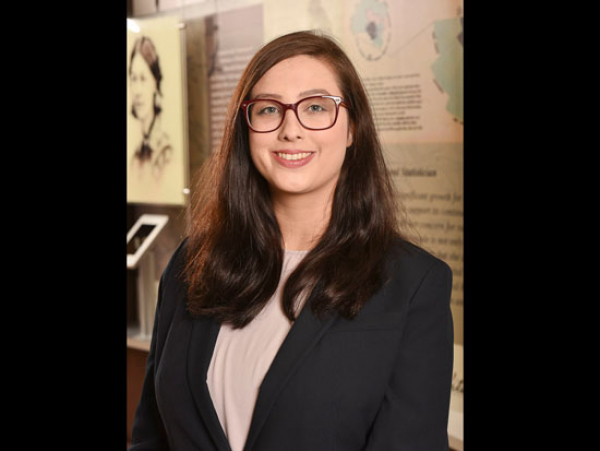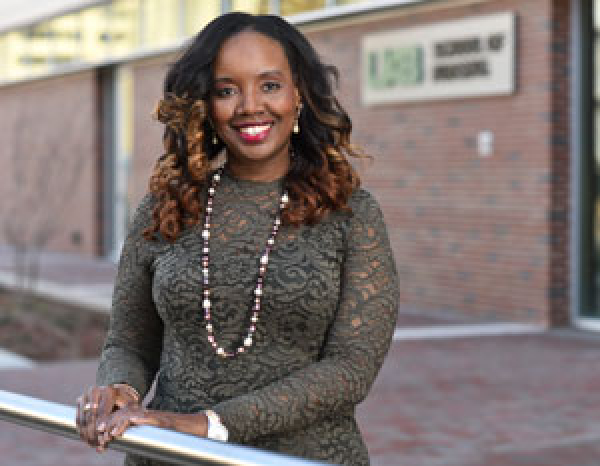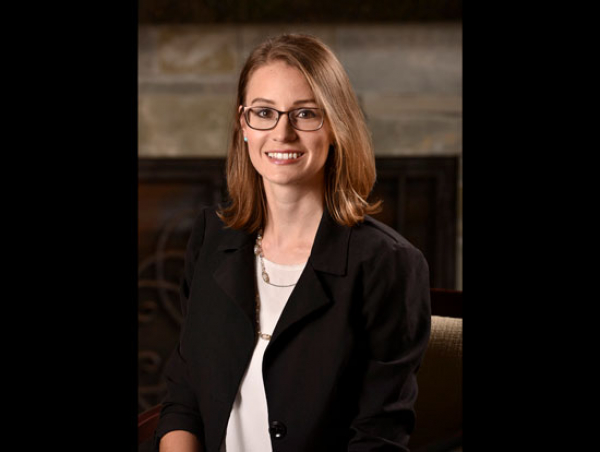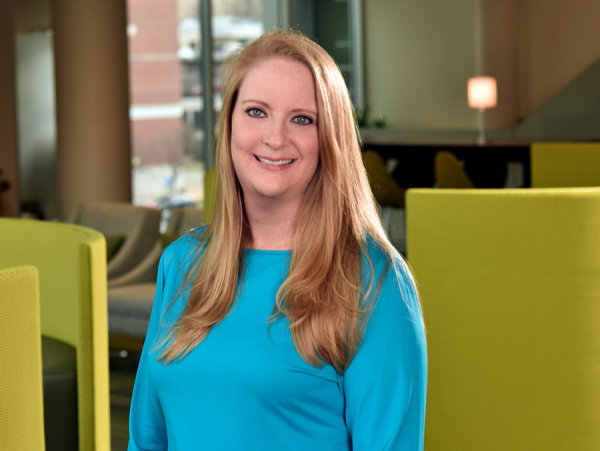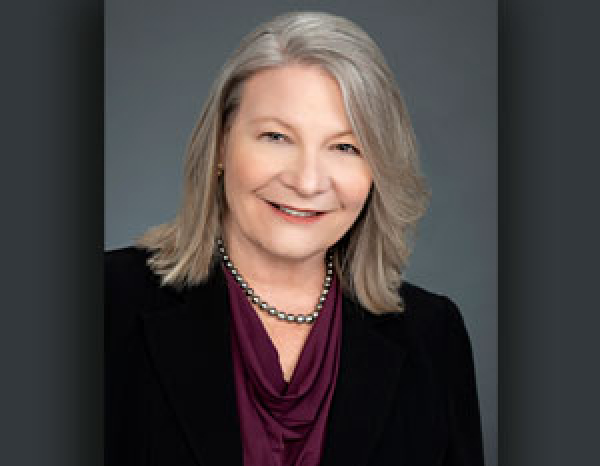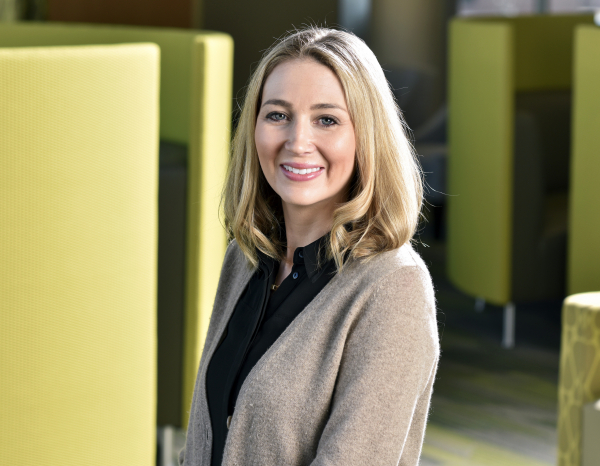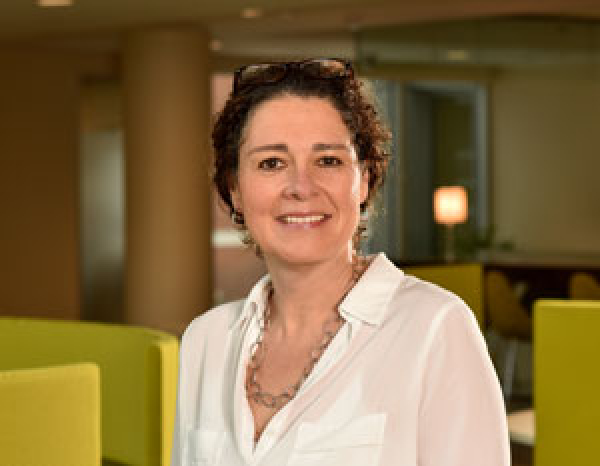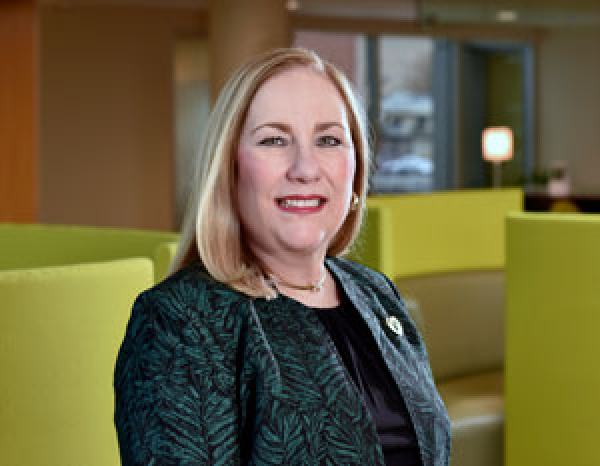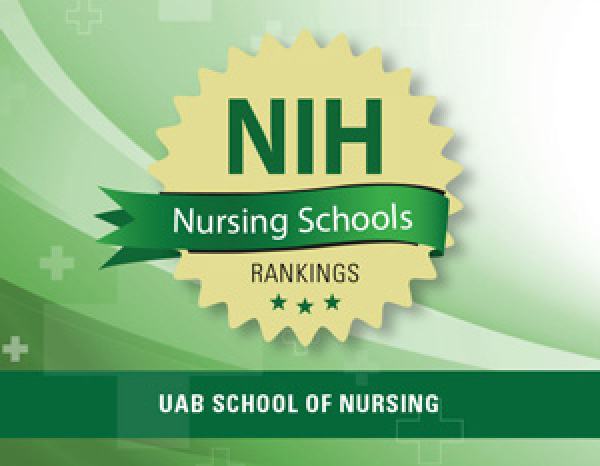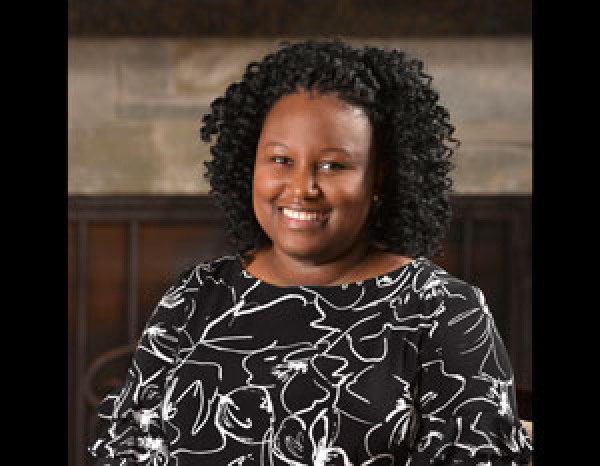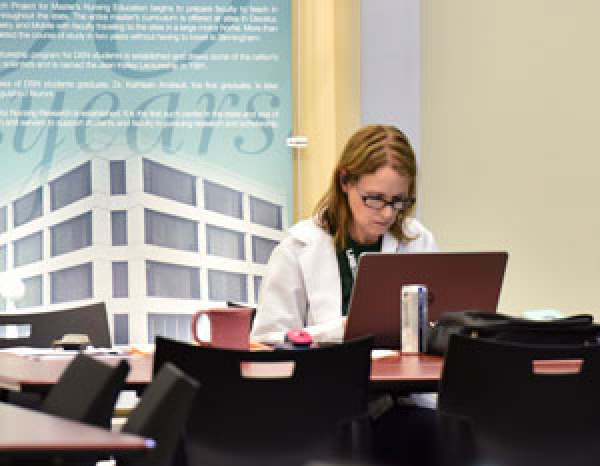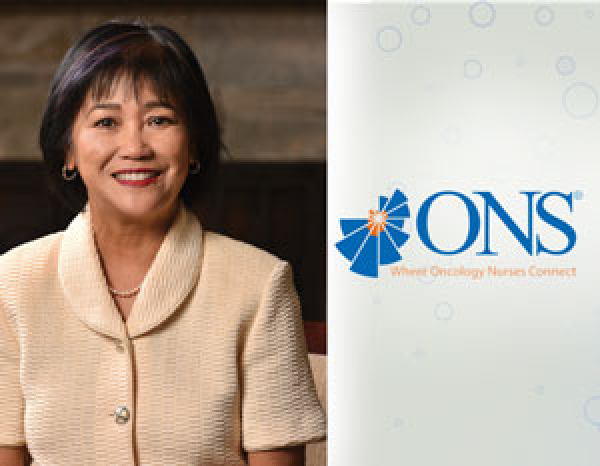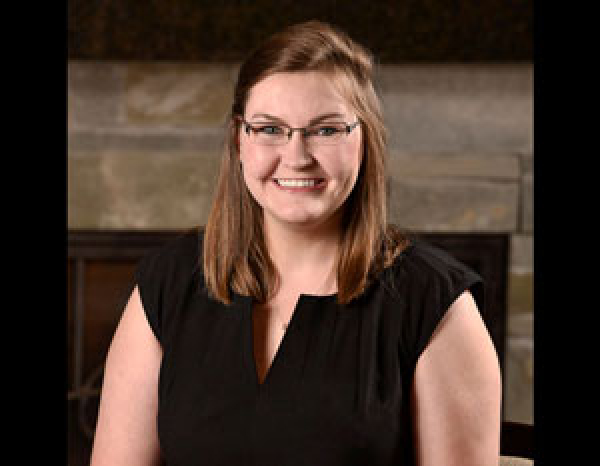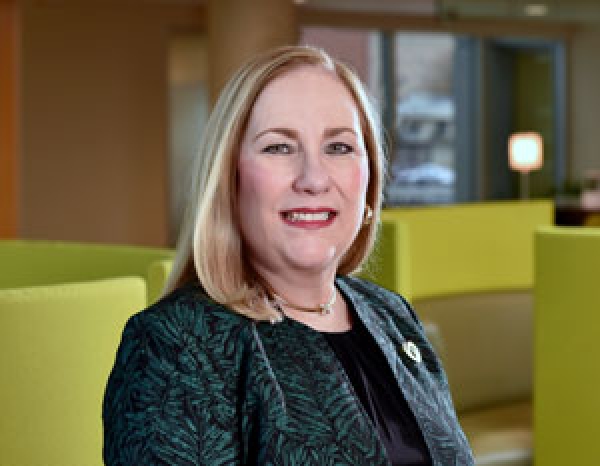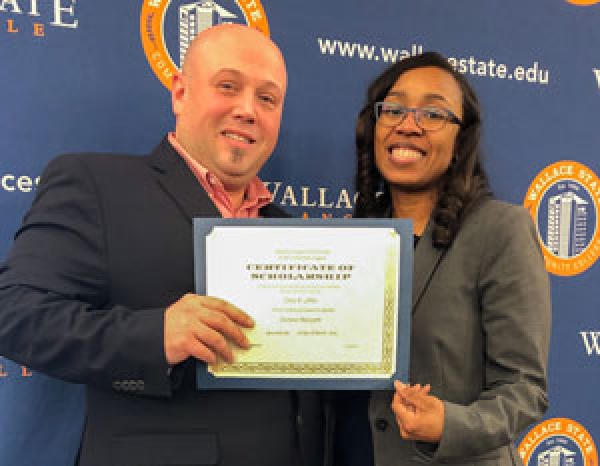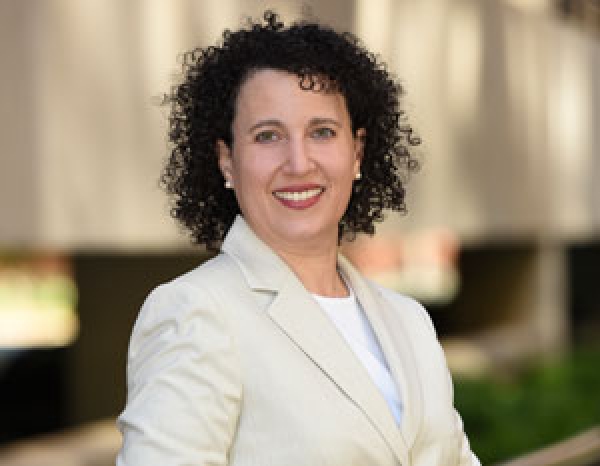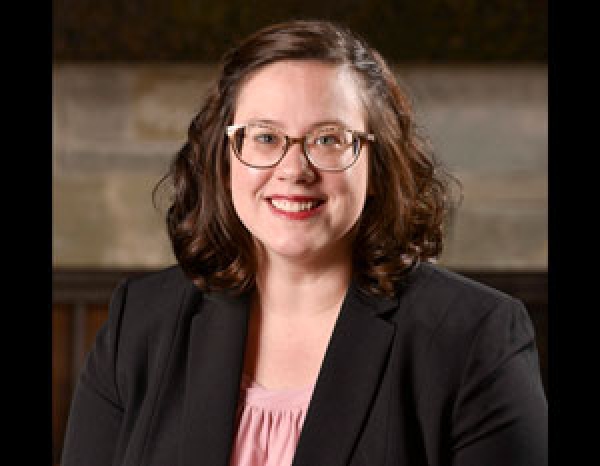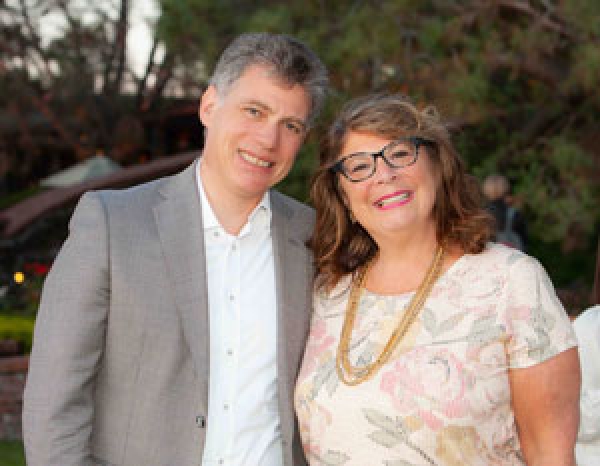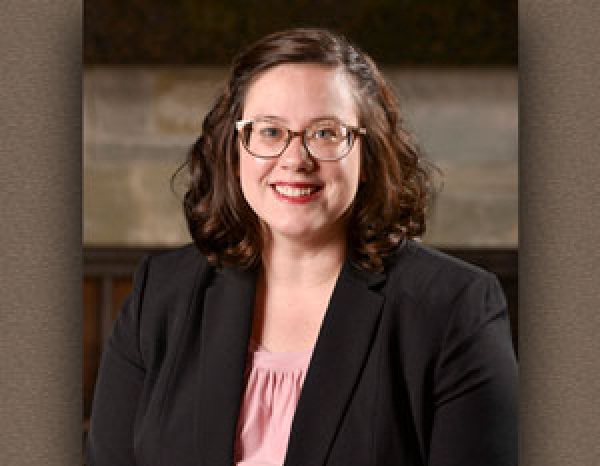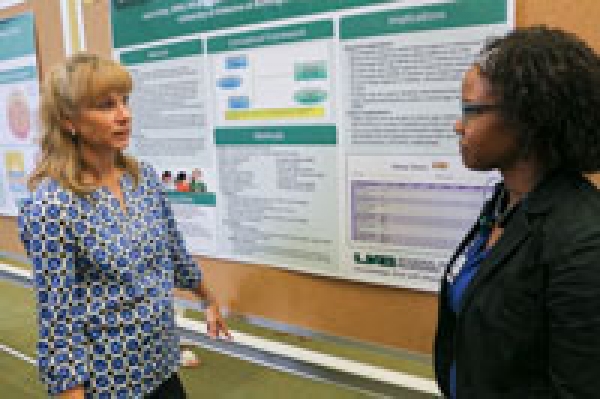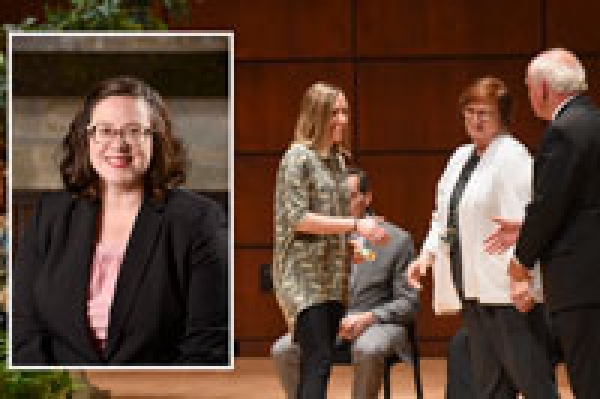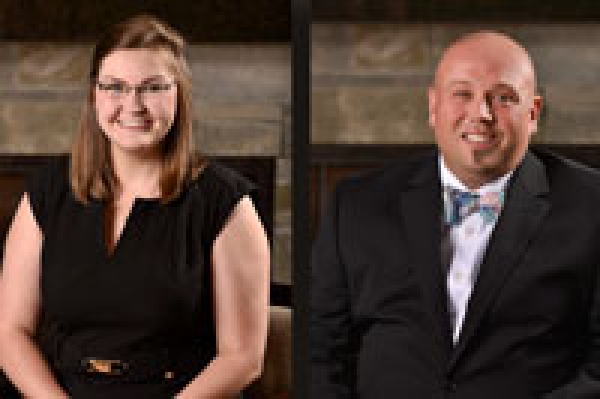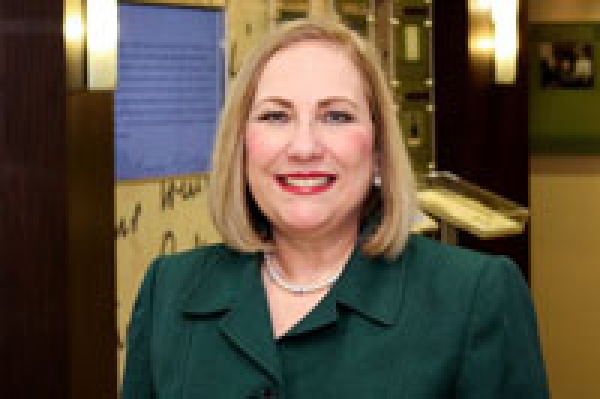
By Laura Gasque and Pareasa Rahimi
With an annual total of $20.5 million in all current research, clinical, education and training grants—the highest in the School’s history—the UAB School of Nursing is looking to the future to cultivate an environment that facilitates and inspires innovative and sustainable scholarship across all missions.
Alongside UAB’s research vision, Growth with Purpose, and the University’s targeted goal of $1 billion in research expenditures, the School is focusing on five high-growth research areas to expand its already diversified portfolio—emerging technology and products, social determinants of health, implementation science, intersection of clinical trials and precision health, and health sciences. And while the School continues to increase its research funding in these key areas, the mission is greater than the money—the ultimate goal being to positively impact lives and improving the health of all Alabamians.
Emerging technology and products
Developing leading-edge technologies to address societal challenges, with a focus on artificial intelligence and data and computer science, is the goal of this strategic opportunity. The School’s faculty have been using new and emerging technologies for several years to help guide their research, from using gaming to improve quality of life for cancer patients to studying the social media impact on the nursing workforce.
Professor Hsiao-Lan Wang, PhD, RN, CMSRN, ACSM EP-C, FAAN, is leading research that uses physical activity to reduce health disparities related to symptom management for cancer survivors. Her recently funded study is testing the PAfitME intervention, an exergame that requires participants to be physically active to play the video game. Wang is using this personalized, low cost, telehealth, home-based intervention to study the impact of the PAfitME on cardiorespiratory fitness and muscle strength of young adult cancer survivors.
“We hope our results will bring a major advancement in both cancer disparity and cancer symptom relief for young adult cancer survivors,” Wang said. “Using personalized, widely available gaming-based telehealth interventions is an example of how emerging technologies have great potential to improve quality of life for a variety of patients.”
Associate Professor, DNP Nurse Executive Pathway Director, MSN Nursing Health Systems Leadership Pathway Director and 2023 Betty Irene Moore Fellow Heather Nelson-Brantley, PhD, RN, NEA-BC, is studying the relationship between social media and nurse recruitment and retention. Nelson-Brantley said that the goal of this three-phase study is to better understand nurses’ use of social media and its relationship to job decision-making—ultimately helping nurse leaders understand which social media platforms nurses are on and why, to better inform social media workforce recruitment strategies.
Social determinants of health
Addressing underlying social factors that impact health outcomes and promoting equitable access to quality health care are key to improving public health and the mental health of communities, both research cornerstones for the School’s nurse scientists and UAB.
“Researchers at the School of Nursing are uncovering exciting new discoveries—cutting-edge approaches for helping people live longer and better lives,” said Professor, Interim Associate Dean for Research and Scholarship and Marie O’Koren Endowed Chair in Nursing Ellen Smith, PhD, MSN, RN, AOCN, FAAN. “This new knowledge has not only made life better for individual people and their families but has far-reaching implications for improving the health and well-being of millions of people across the globe.”
University Professor Mirjam-Colette Kempf, PhD, MPH, serves as co-principal investigator for a $15 million grant from the National Institutes of Health to study HIV vulnerabilities, health services and outcomes in cisgender women. The study is looking at factors beyond individual-level behaviors to understand women’s vulnerabilities to HIV infection. The long-term goal of this project is to provide the knowledge base to develop effective HIV prevention programs for cisgender women.
Associate Professor and Interim Assistant Director of the PhD Program and the Dual DNP-PhD Pathway Crystal Chapman Lambert, PhD, CRNP, NP‐C, FNP‐BC, AAHIVS, ACRN, FAAN, named a Betty Irene Moore Fellow in 2023, is studying ways to improve health outcomes for minority women living with HIV. She is looking at enhancing social support for Black women with HIV using evidence-based technology interventions to improve outcomes.
Several faculty also are studying chronic condition management to understand the impact of pain on well-being and outcomes among minority populations.
Assistant Professor Frank Puga, PhD, is using a five-year, $3.14 million grant from the National Institutes of Health to study the mental health experiences of Hispanic and Latino/a caregivers of individuals with Alzheimer’s disease and related dementias.
“Hispanic and Latino/a adults develop dementia at a younger age, may experience more symptom burden than other ethnic/racial groups and have higher rates of comorbidities,” Puga said. “Given this, Hispanic and Latino/a dementia caregivers are uniquely susceptible to increased caregiving stress that can negatively impact their mental health.”
Associate Professor and Interim Assistant Dean for Research and Scholarship Edwin Aroke, PhD, CRNA, FAAN, FAANA, leads an interdisciplinary program of research promoting equity in pain management. His work investigates social determinants of pain and mechanisms that cause and sustain pain disparities. He has a four-year, $1.7 million R01 grant from the National Institutes of Health that uses an epigenomic approach to uncover drivers of chronic low back pain disparities between Black and Brown individuals. Preliminary findings from this work suggest that epigenetic changes in pathways involved in stress dysregulation may play a crucial role in pain disparities, partly through an accelerated pace of biological aging, in disadvantaged individuals.
Implementation Science
The School’s nurse scientists also are investigating the effective integration of evidence-based practices and interventions in a variety of areas, including care delivery and adoption and application of new and best practices.
Associate Professor and Doreen C. Harper Endowed Professor J. Nicholas Odom, PhD, MSN, MA, RN, ACHPN, FPCN, FAAN, is developing, testing and implementing early palliative care interventions for minority and historically under-resourced family caregivers of individuals with serious illnesses. He recently co-authored the American Cancer Society’s “Developing Caregiver Clinical Services: A Toolkit for Cancer Centers and Staff,” the first of its kind to provide comprehensive resources for oncology clinicians’ use to implement caregiver clinical services.
“Our reliance on families providing support to their loved ones with cancer will markedly increase over the coming decades,” Odom said. “By establishing caregiver clinical services, cancer centers can ensure caregivers are effective and healthy in their role, and this new toolkit is a roadmap for making these services possible.”
Professor and Rachel Z. Booth Endowed Chair in Nursing Patricia A. Patrician, PhD, RN, FAAN, has a $2.3 million HRSA grant for the Workforce Engagement for Compassionate Advocacy, Resiliency, and Empowerment, or WE CARE program. Its goal is to reduce burnout and promote mental health and well-being within the nursing profession. After partnering with UAB Medicine in the grant’s first year and supporting the UABSON in the second year, the goal of the third year is expanding the support, training and resources to nurses throughout Alabama.
Nelson-Brantley also is researching care delivery models in acute care hospitals and the impact on expected outcomes for patients and families. The purpose is to provide acute care settings with best practices for care delivery by identifying unit level, hospital level, and system differences in care delivery models, and strategies perceived as cost-effective, to develop future studies that test the effectiveness and implementation outcomes of care delivery models informed by this study.
Professor and Associate Dean for Clinical and Global Partnerships Michele Talley, PhD, CRNP, ACNP-BC, FAANP, FAAN, FNAP (MSN 2005, PhD 2015), is working to improve the distribution of the behavioral health workforce through the development of new partnerships and expansion of existing partnerships among the School, Bibb Medical Center, UAB Hospital and the Nurse-Family Partnership of Central Alabama. There have been 11 new clinical partnerships created since the program began. Master's and doctoral level psychiatric-mental health nurse practitioner students, master's level social work students and Year 4 psychiatry residents are being trained to provide integrated behavioral health services in high-need, high-demand, underserved communities to expand access to mental health care in Alabama. So far, the program has trained 18 psychiatric-mental health nurse practitioner students, 14 social work students and 12 psychiatry residents, with plans to recruit and train more students.
Intersection of clinical trials and precision health
The School also is focusing on exploring the synergy of clinical trials and precision health to advance personalized medicine and optimize health care outcomes in focus areas such as cardiology, oncology and neurology—including Alzheimer’s disease, cognitive impairment and dementia.
Professor Rita Jablonski, PhD, CRNP, FGSA, FAAN, is researching ways of coaching dementia caregivers to master care-resistant behavior. People living with Alzheimer’s disease and other dementias may refuse help, which can cause family caregivers to feel helpless. This project is evaluating an evidence-based, tele-coaching intervention, Care-Resistant Behavior Internet Training, to enhance coping skills of family caregivers.
Professor, Interim Associate Dean for Research and Scholarship and Marie O’Koren Endowed Chair in Nursing Ellen Smith, PhD, MSN, RN, AOCN, FAAN, is helping address a gap in scientific knowledge between colorectal cancer treatment and the chemotherapy side effects that cause upper and lower extremity numbness. The goal is to minimize cancer treatment-associated debilitating side effects experienced by survivors.
Professor and Interim Director of the PhD Program Pariya Wheeler, PhD, has two ongoing research projects focused on people aging with HIV. Her most recently funded project tests cognitive effects of exercise interventions in aging populations with HIV who are at a higher risk for Alzheimer’s disease and related dementias.
Assistant Professors Shena Gazaway, PhD, RN, and Rachel Wells, PhD, RN (MSN 2009, PhD 2019), are leading a pilot project working to reduce pain disparities in under-resourced Black adults with advanced heart failure using a non-pharmacological, palliative care pain intervention. The goal is to improve self-management of pain symptoms.
Through a grant awarded by the National Institute of Diabetes and Digestive and Kidney Diseases, Gazaway also is developing a pilot project focused on providing individuals with chronic kidney disease and their family caregivers the decision and communication skills necessary to navigate advancing disease before facing major health-related decisions. The pilot is assessing the feasibility, acceptability and potential benefits of each component of the decision support intervention, including finding ways to optimally support and engage patients in active disease management and future planning.
Health sciences
The fifth high-growth research area is understanding the study, promotion and optimization of health and well-being with focus areas such as cancer, and metabolic disorders like diabetes and neurosciences.
Associate Professor Pamela G. Bowen, PhD, CRNP, FNP-BC (BSN 1988, MSN 1992, PhD 2012), is studying the effects of exercise on brain health. Bowen and her collaborators are collecting preliminary data to demonstrate the impact of exercise on hypertension and its broader effect across other health risk factors, consequently improving overall brain health. The project is part of an interprofessional partnership with the UAB Center for Exercise Medicine and the Department of Optometry and Vision Science in the UAB School of Optometry.
“The brain defines us as humans and allows us to function in our daily lives. Most occurrences of cognitive decline, dementia and stroke can be delayed or even averted if we take charge of our own health care,” Bowen said. “We want participants to appreciate and incorporate health promotion strategies into their daily lives, such as exercise, because small health changes can have a huge influence on long-term health outcomes. According to research, reducing risk factors such as high blood pressure and adopting healthy lifestyle practices such as exercise can minimize the incidence of cognitive impairment.”
Professor Karen Heaton, PhD, CRNP, FNP‐BC, FAAOHN, FAAN (BSN 1981), a recipient of a Dean Scholar’s Award, is studying the impact of the use of a kiosk and telehealth coaching in cardiovascular risk reduction in firefighters. The goal of Heaton’s project is to optimize hypertension and obesity management.
Growth with purpose
As the School grows and maintains its funding momentum in these five key areas, the mission always will be a collective effort to improve the health of all Alabamians. Alongside UAB’s research strategic initiative, Growth with Purpose, the vision is to grow the research enterprise to further enhance the lives of those it serves by fostering positive, healing transformation, empowerment and lasting societal benefit.
“The School and its talented researchers take great pride in contributing not only new knowledge to building the science, but also translating their discoveries to enhanced the lives of Alabamians and beyond,” said Dean and Fay B. Ireland Endowed Chair Maria R. Shirey, PhD, MBA, RN, NEA-BC, ANEF, FACHE, FNAP, FAAN.
Click here to learn more about the School’s research.

